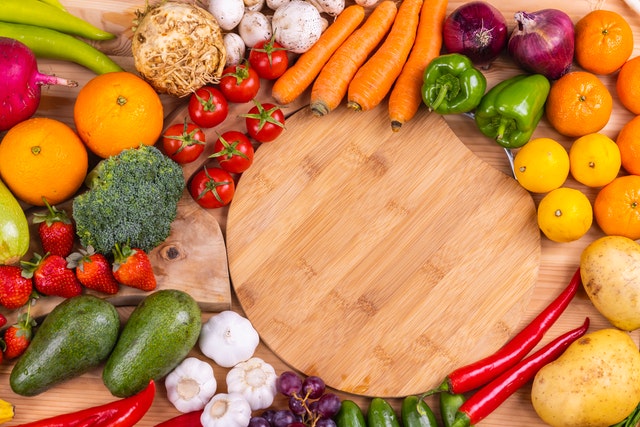Are you getting enough?
When you were a youngster, how many times did your mother urge you (or more appropriately shout) to “Take your vitamins!” and thrust some gummy tablets in your face? Isn’t it just me? You realise that vitamins aren’t truly good-for-you sweets now that you’re older and wiser. Your body may require an additional supplement to be healthy and powerful. However, with so many brands for women on the market, choose which vitamins to include in your daily routine can be difficult.
1. Iron

To assist your body absorb the iron, combine these meals with vitamin C-rich foods like sweet potatoes or broccoli and spinach.
Reduced red blood cell synthesis due to a lack of iron can lead to anaemia, a condition in which your red blood cell count is insufficient to transport oxygen to your cells.
2. Calcium

Calcium helps muscles work and maintains your bones and teeth healthy.
You can get calcium by taking Yogurt, cheese, Broccoli and kale, as well as dark-green leafy veggies.
3. Magnesium

You can obtain magnesium from taking Okra, beans, nuts, seeds, and whole grains that haven’t been processed.
4. Vitamin A

Vitamin A helps your eyes, skin, immune system, and many other body components develop and operate properly.
You can obtain vitamin A from taking Tomatoes, fruits, dairy products, liver, fish, and fortified cereals are all good sources of vitamin A. Multivitamins and standalone supplements include vitamin A.
5. Folate

Folate, a B vitamin, is required for normal brain function because it builds and maintains new cells.
You can obtain it from taking Avocados, beans, eggs, and peanuts are all good sources of vitamin A. Supplements containing synthetic folate (folic acid) are commonly added to enriched cereals, breads, pastas, and rice.
6. Biotin

You can obtain Biotin from taking Cauliflower, liver, sweet potato, almonds, avocado, seeds, eggs, milk, cereals, and raspberries are some of the foods that are high in antioxidants.
7. B Vitamins

Vitamins like B6 and B12 aid in the conversion of food into energy. They also aid in the maintenance of healthy skin, hair, and eyes. They also support healthy nervous system function, metabolism, muscular tone, and mental clarity.
You can obtain it from taking Fish, poultry, meat, eggs, dairy products, leafy green vegetables, lentils, a variety of cereals, and various breads are all good sources of omega-3 fatty acids.
8. Vitamin C

.
Normalizes growth and development while also repairing biological tissues, bones, and teeth. It acts as an antioxidant, preventing part of the harm that free radicals do.
It can be obtained from Citrus fruits, red pepper, and broccoli are among the fruits and vegetables.
9. Vitamin D

Promotes bone, cell, neuromuscular, and immune system function. It also aids with inflammation reduction.
It can obtained from Fish liver oils and the flesh of fatty fish like salmon and tuna, with trace quantities in cow liver, cheese, and egg yolks. Many individuals get at least some of their vitamin D from sunshine, so if you live somewhere with few sunny days, you might want to consider eating more vitamin D-rich foods or taking a supplement.
10. Omega-3

Omega-3 aids in optimal brain and behavioural function (memory and performance), as well as lowering blood pressure and reducing inflammation.
It can be obtain from Plants and nut oils, especially fatty fish like salmon, tuna, sardines, and mackerel. (If you don’t like seafood, fish oil capsules are a good alternative; nevertheless, Glassman recommends taking no more than three grammes each day since fish oil can thin your blood.)
11. Probiotics

Aids digestion, promotes gut health, fights disease-causing bacteria, and can assist with diarrhoea from infections and irritable bowel syndrome.
A famous example is yoghurt. Other probiotic foods include kombucha, kefir, miso, sauerkraut, pickles, and fermented cheese, among others.
12. Fiber

Fiber aids digestion, decreases the risk of heart disease by lowering LDL cholesterol levels, makes you feel full, and aids weight reduction.
Fiber is abundant in plant-based foods such as fruits, vegetables, nuts, beans, grains, and legumes. Remember that fiber-rich pills like Benefiber and Metamucil, which include bowel-stimulating components like wheat dextrin and psyllium husk, respectively, lack other critical nutrients, so it’s better to get your fibre from whole meals.
13. Prebiotics

Prebiotics can help you avoid allergies by regulating your immunological response to gut flora, as well as improving your immune system and increasing calcium absorption.
Walnuts, dark chocolate, lentils, leeks, and apples are examples of prebiotic foods. Beta-glucans are also present in a variety of cereals, including oats and barley.
14. Melatonin

Helps manage the timing and release of female reproductive hormones, which determine when a woman begins to menstruate, the frequency and duration of menstrual cycles, and when she stops menstruating, i.e. begins menopause.
Lozenges, pills, creams, and tablets However, eating minerals like magnesium (spinach) and tryptophan (eggs), which stimulate the body’s natural synthesis of melatonin, is even better, according to Palinski-Wade. Taking melatonin supplements might prevent the body from making it naturally.
15. Zinc

By limiting inflammation in the body, it defends against poisons and foreign substances, as well as developing T-cells, which are part of the immune system and help fight viruses. Zinc aids in blood coagulation, taste perception, and blood sugar control.
Legumes, oysters, nuts, and seeds are all high in zinc. “Because you only need so little zinc,” Bontempo cautions, “it’s possible to overdose and experience bad results.” So, before you use a supplement, see your doctor.
Thank you.

